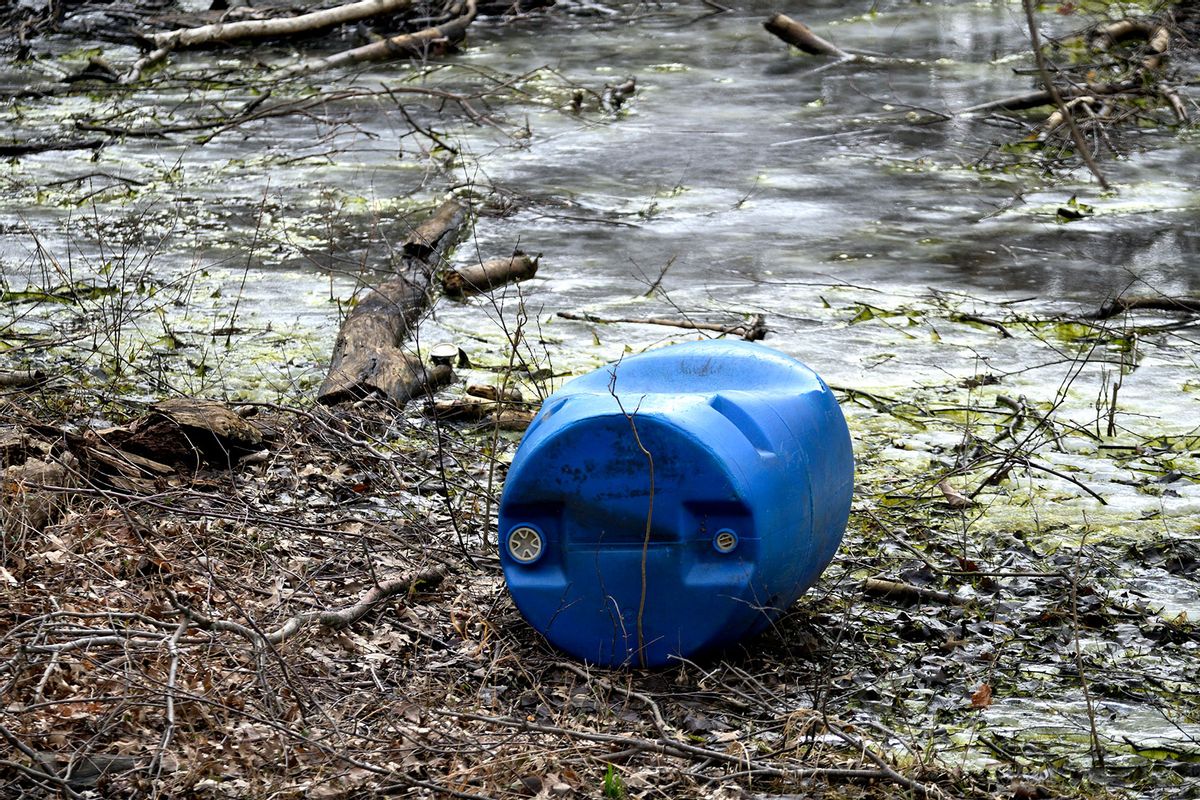Millions of Americans have high blood pressure, a condition that can cause heart attack or stroke if left untreated. Generally, this condition is believed to be caused mostly by diet. Yet now, a stranger potential culprit has emerged: a synthetic chemical that is in thousands of consumer products, kitchenware, and even microwave popcorn bags, and which may be contributing to hypertension or high blood pressure.
These man-made "forever chemicals" — so named because of their ability to break down — are known as per- and polyfluoroalkyl substances, shortened to PFAS. They are used in everything from non-stick cookware and fast food wrappers to furniture and paper packaging. Indeed, PFAS appear to enter our blood in part of their utter ubiquity in industrial civilization.
This is where a new report comes into play. According to research published in Hypertension, a journal of the American Heart Association, middle-aged women specifically were more likely to have high blood pressure if they also had higher blood concentrations of higher blood concentrations of these forever chemicals.
RELATED: "Forever chemicals" in non-stick pans are in your body right now — and may be affecting your liver
To ascertain this, the researchers used data from 1,000 women between the ages of 45 and 56. All of them had normal blood pressure prior to enrollment in the study and had their blood PFAS levels measured in advance. The participants were racially diverse, came from five cities in either California or the northern United States, and included women who identified as white (54.5%), Japanese (16.2%), Black (15.2%) or Chinese (14.1%).
Their conclusion was that "women with higher concentrations of specific PFAS were more likely to develop high blood pressure," more specifically, "women in the highest one-third concentrations of all seven PFAS examined had a 71% increased risk of developing high blood pressure."
Experts estimate that 99 percent of Americans have at least some PFAS in their blood. That means that in studying such chemicals, research must focus on the extent of one's exposure, as it is near-impossible to have a control group with no exposure. This creates some understandable difficulties when attempting to create a controlled experiment assessing how PFAS impact human health.
Want more health and science stories in your inbox? Subscribe to Salon's weekly newsletter The Vulgar Scientist.
"We cannot know for sure that PFAS are causing hypertension because our study is not an experiment that exposes humans with PFAS and compared with non-exposed controls," study senior author Sung Kyun Park, Sc.D., M.P.H., an associate professor of epidemiology and environmental health sciences at the University of Michigan School of Public Health told Salon by email. "To prove if environmental chemicals like PFAS cause any health outcomes, we need a number of well-designed and well-conducted studies that show consistent results. Our study is its first step and we need more studies to conclude if PFAS are causally associated with hypertension and cardiovascular disease."
"The best way to reduce health impacts at this point is to focus on regulation to make sure we aren't exposed in the first place, and find ways to permanently remove them from our environment."
Liz Costello, a PhD student at the University of Southern California who was involved in a study linking PFAS to liver disease, praised the new report and noted that while an individual observational study like this one could not possibly prove that PFAS cause hypertension, "prospective studies like this one are the best we have without doing a controlled experiment, and they can confirm for us that there is no reverse causation (where having high blood pressure might somehow affect blood PFAS levels) because the PFAS exposure happened before development of hypertension."
When asked if there was anything consumers could do to avoid PFAS, Costello was skeptical.
"I think it's very hard for people to avoid PFAS on their own," Costello explained. "There are some water filters that can remove them if you have contaminated water, but it's much harder if PFAS are in your food packaging or household products. Some products might also advertise themselves as being free of PFAS, so if you know what to look for you might be able to avoid some exposure. But there are thousands of PFAS, and you won't find most of them on product labels."
She added, "The best way to reduce health impacts at this point is to focus on regulation to make sure we aren't exposed in the first place, and find ways to permanently remove them from our environment."
Since it is impossible for individuals to avoid exposure, Park argued that people should focus on improving chemical regulations.
"It's more important that we regulate PFAS through legislation," Park explained. "If we have stricter regulations, everyone can benefit. It is very important for our policymakers to do something and act on PFAS exposure. We have a lot of scientific evidence that consistently tells us that reduction in PFAS is really important."
For more Salon articles on pollution:

Shares